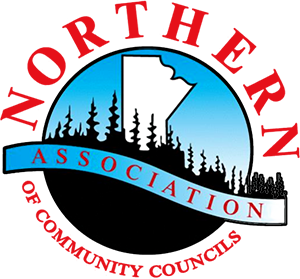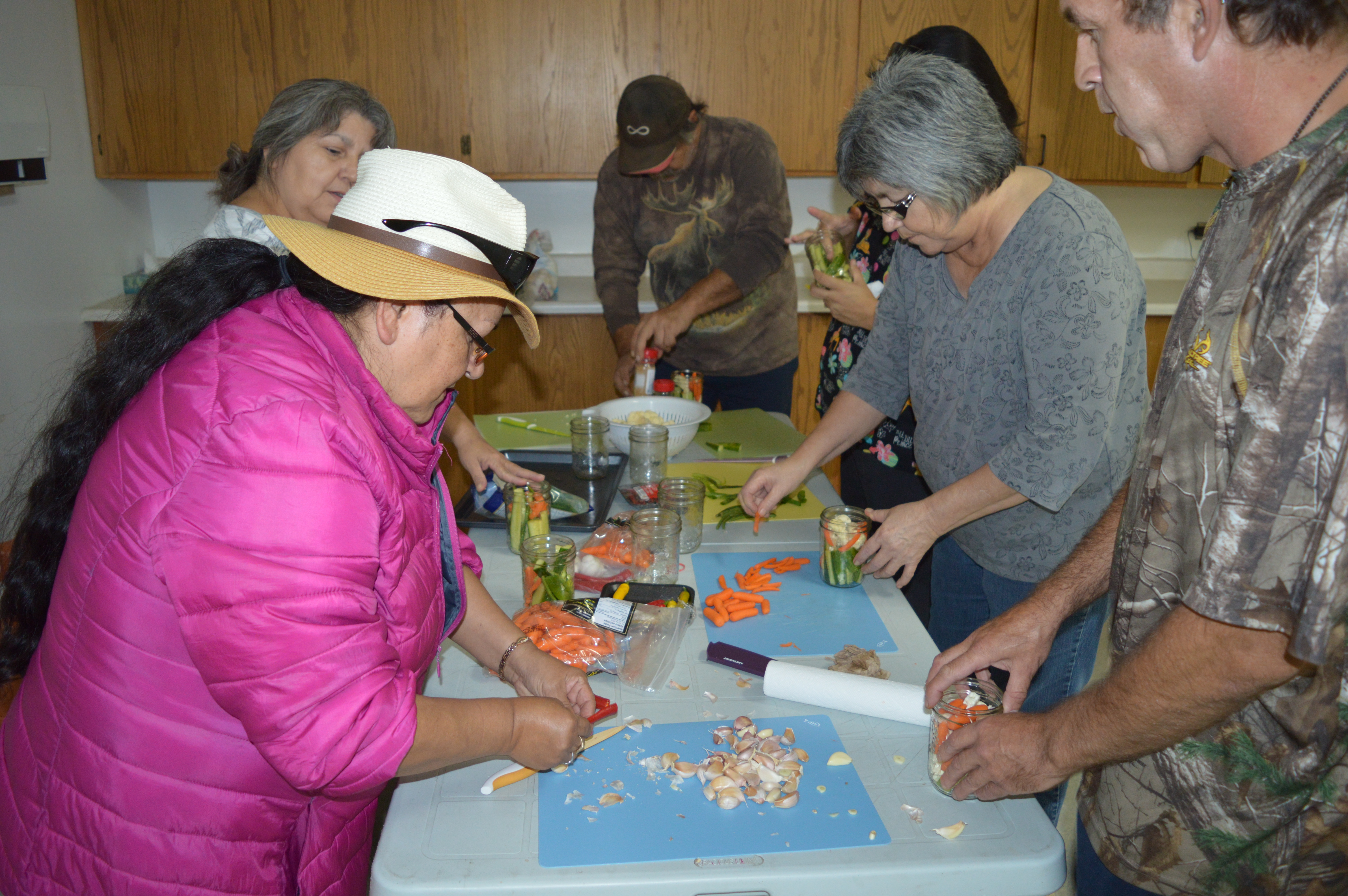A community-based program that is designed to increase accessibility to healthy food in northern and remote Manitoba communities.
Check out our Resources and Newsletter pages for more information on our current programs!
Background
The Northern Healthy Foods Initiative
The NHFI was launched in 2004 taking into consideration the Northern Food Prices Report 2003. This report identified the high cost of nutritious foods, such as milk, fresh fruits and vegetables, whole grains and staple food items that northerners are faced with.
NACC was a part of the Steering Committee for the initiative and is one of the four NHFI regional partners- Bayline Regional Roundtable, Food Matters Manitoba and Four Arrows Regional Health Authority. In addition to these partners, the Frontier School Division plays a very important role in this initiative.
The Northern Healthy Foods Initiative is managed and directed by The Government of Manitoba’s Indigenous and Northern Relations (IRNR) department and aims to serve communities that fall within the IRNR Northern Affairs Branch boundary.
Seeds of Change
The Seeds of Change Program allows participants to use their personal and/or community gardens to grow vegetables, berries, or herbs.
The benefits of gardening:
- Healthier communities: A chance to build, create new friendships and networks with one another
- Healthier schools: Broadens the scope of learning and helps to integrate youth within the community
- Community involvement
- Inter-generational interaction
- Access to healthy fresh and organic food
- Cost savings
- Personal benefits (e.g. physical, mental, spiritual, and exercise)
Beekeeping
The NACC Beekeeper Program’s primary goals:
- Promote beekeeping in communities by offering training, supplies, equipment and mentorship support.
- Help develop a vibrant, diverse and resilient source of honey for residents and local markets.
- To support food sustainability initiatives, resulting from the potential increase in local honey production
- Benefits increased garden or orchard productivity due to pollination.
Composting
Composting is the process of allowing organic material to decompose in a controlled setting, is a natural and beneficial process.
Why Compost:
- Curb the need for landfills. Roughly half of what ends up in the landfill is compostable. Composting is a great way to reduce our use of landfills.
- Replenish our soils. Organic compost is not only an excellent fertilizer providing critical nutrients for soil health but it is also the most effective way to grow organic crops. Artificial fertilizers wreak havoc on local systems and require a serious petroleum-based infrastructure.
- Reduce greenhouse gas emissions. When organic matter decomposes anaerobically it produces methane, a greenhouse gas that is 30 times more potent than CO2.
Partners
NHFI is administered by Manitoba Indigenous Reconciliation and Northern Relations (IRNR). It also receives continued guidance from an NHFI Management Committee with representatives from Manitoba government departments and agencies including:
- Manitoba Indigenous Reconciliation and Northern Relations
- Manitoba Agriculture and Resource Development
- Manitoba Sustainable Development
- Manitoba Health, Seniors and Active Living
Community-based organizations participating in the NHFI are unique and successful at increasing their food supply, reducing the cost of nutritious food in the north, and reducing the health effects linked to poor diet. In addition to the NACC, food security projects are delivered to northern and remote communities by the following regional partners:
- Bayline Regional Roundtable Inc.
- Northern Association of Community Councils Inc.
- Four Arrows Regional Health Authority Inc.
- Food Matters Manitoba
More about NHFI at NACC:
If you want to volunteer or get involved contact the NACC NHFI Program Coordinator today at programnhfi@naccmanitoba.com OR 204-947-2227 or Toll-Free: 888-947-6222.
How does the Northern Healthy Foods Initiative (NHFI) work?
The Northern Association of Community Councils (NACC) is one of the Manitoba Government’s Northern Healthy Foods Initiative (NHFI) partners designated to help communities in Northern Manitoba with their local food self-sufficiency projects. Such projects include; vegetable gardens, fruit production, smaller backyard greenhouses and poultry, workshops such as cooking classes, how to start your own garden, school programming, and projects that help revitalize the traditional hunting and gathering culture. NACC NHFI’s goals are to help to: (1) increase food security efforts at the community level and (2) strengthen community led development.
The Vital Role of the Community Food Champions (CFC)
Community Food Champions (CFC) are people in NACC’s NHFI communities who have been designated by their local community council, community contacts, or NACC to take the lead in the organization and delivery of NHFI projects. CFCs can be Community Volunteers, Community Administration Officers, Health Promotion Staff, School Staff, and/or Recreational Directors. There can be more than one CFC per community. CFCs could be local mentors in one or a variety of areas. They could be gardeners, beekeepers, hunters, gatherers or farmers who would like to share their knowledge and skills with others in their community. They could work on one or many projects, and receive financial and other support from NACC to help make the projects a reality (e.g.: instructor honorariums, supplies for community workshops, etc.). Volunteering as a CFC is a great learning and sharing opportunity! CFCs are eligible to attend training opportunities free of charge, with the expectation that they will then share what they’ve learned in their community. CFCs work closely with their communities and the NACC NHFI Project Coordinator. If you have an idea for a workshop or would like to be a part of an NHFI activity in your community, contact your local CFC!

